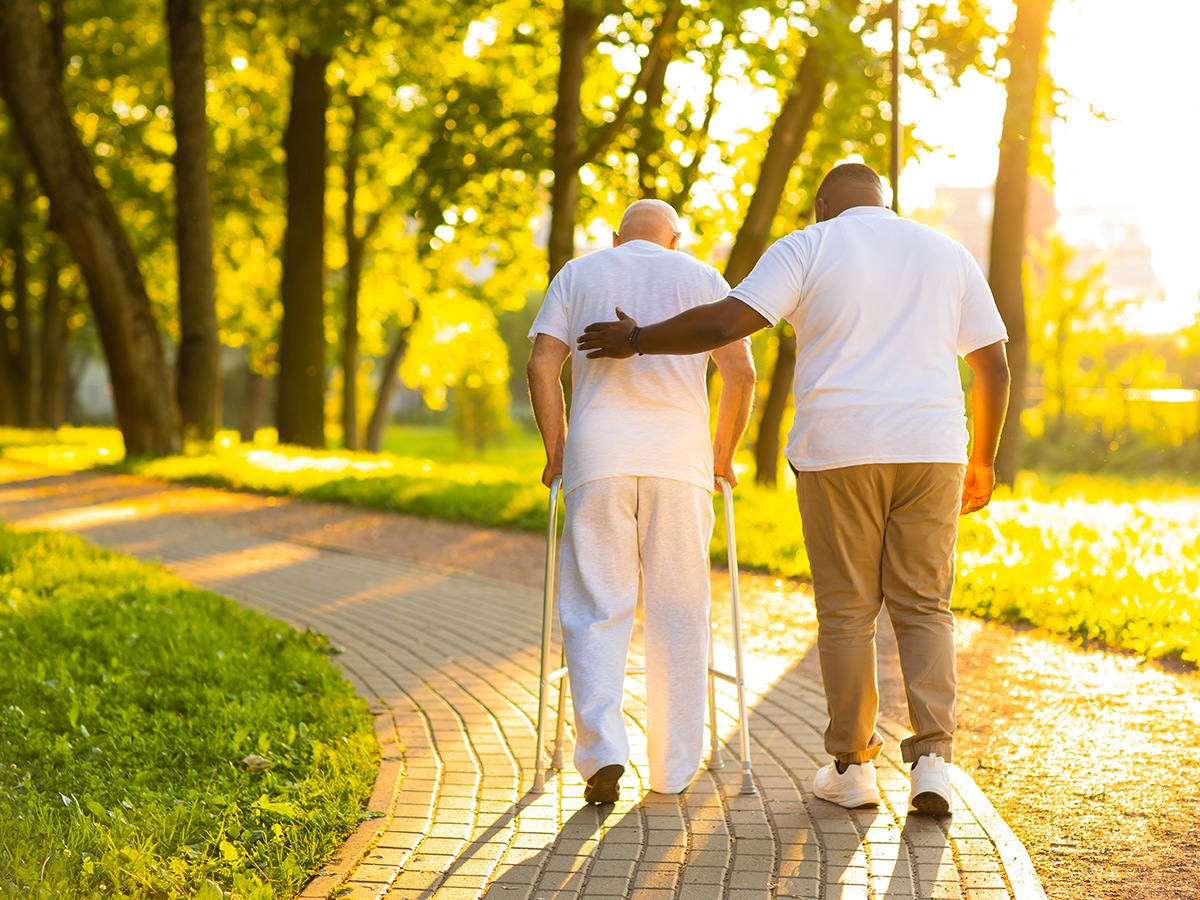 Provide care for senior loved ones with advice from a UAB expert.Caregivers play a vital role in senior health, from managing medications and preventing falls to monitoring mental health and handling emergencies. At the University of Alabama at Birmingham, there are resources to help caregivers effectively support the health and well-being of older adults.
Provide care for senior loved ones with advice from a UAB expert.Caregivers play a vital role in senior health, from managing medications and preventing falls to monitoring mental health and handling emergencies. At the University of Alabama at Birmingham, there are resources to help caregivers effectively support the health and well-being of older adults.
Andrew Duxbury, M.D., professor in the UAB Division of Gerontology, Geriatrics and Palliative Care, provides expert advice and tips for at-home geriatric care.
General tips
The health of older adults can change quickly, and caregivers must be prepared to adapt to those changes. Various factors determine how effective at-home care is.
Duxbury recommends these five tips to those caring for older adults:
- Get appropriate rest.
- Schedule extended time away every three to six months.
- Talk with individuals who understand the situation.
- Be understanding of the older adult.
- Be prepared for adjustments to be made.
Health
Check-ups and screenings can improve senior care, but they are not always needed. Duxbury recommends that older adults with physiological or cognitive conditions schedule regular appointments every six months. However, those with no immediate chronic conditions should have a yearly appointment, unless other circumstances arise.
Duxbury says that medication reconciliation and skin cancer screenings can be helpful. However, not all screenings are necessary for older adults.
“A medication reconciliation takes a good look at all of a patient’s current prescriptions to ensure their medication plan makes sense,” Duxbury said.
Managing prescriptions and ensuring proper medicine use is a key factor of care. Some methods to help ensure a proper medication schedule include using weekly pill organizers, checking that the pills are being taken and confirming with the pharmacy that refills are being picked up.
Falls
A major concern in senior care is fall prevention. Falls are a common occurrence in older adults. As humans age, balancing on two legs gets much more difficult.
“When we are young and first start understanding balance, we do not have to focus on it too much,” Duxbury said. “As we get older, falls often happen due to a systems failure with balance.”
In indoor settings, touching a doorknob, railing or wall can act as a third point of balance and provide extra support. However, when it comes to the outdoors and uneven terrains, Duxbury recommends having the older adult use walking sticks or other mobility aids.
“As time goes on, the brain slows down, and our ability to send quality information to our muscles weakens,” Duxbury said. “Most people will eventually need a fourth point of balance, such as walkers.”
Wellness
Older adults need mental as well as physical health support, but the caregiver should not overlook how important their own mental health is when it comes to providing care.
Navigating and looking out for all the various factors that can affect a senior’s health can be mentally draining, according to Duxbury. Scheduled time away, breaks and rest are essential to caregiving.
“It is not just about the patient’s well-being; it is also about the caregiver’s,” Duxbury said.
UAB resources and services
Helpful resources for caregivers can be found at the Geriatric Clinic at UAB Hospital-Highlands.
“UAB Hospital Highlands provides a full spectrum of geriatric care for people with various needs brought on by the challenges of aging,” Duxbury said. “It is home to the first accredited Level 1 Geriatric Emergency Department in the Southeast.”
The geriatric ED is part of a specialized pathway for older adults to allow them to feel more comfortable during their visit. The UAB Geriatrics Clinic is accepting new patients. To learn more about UAB’s geriatric services, click here.